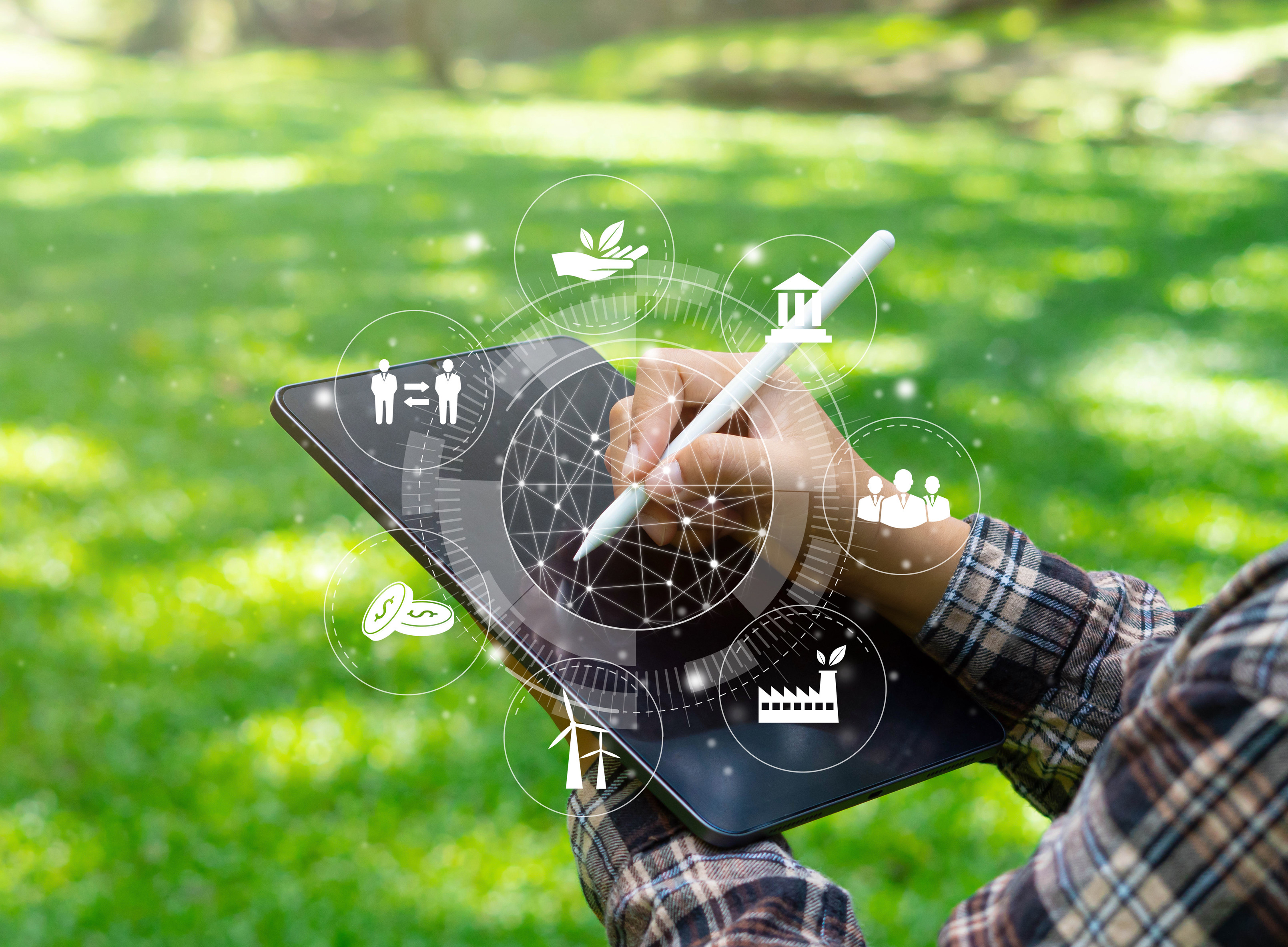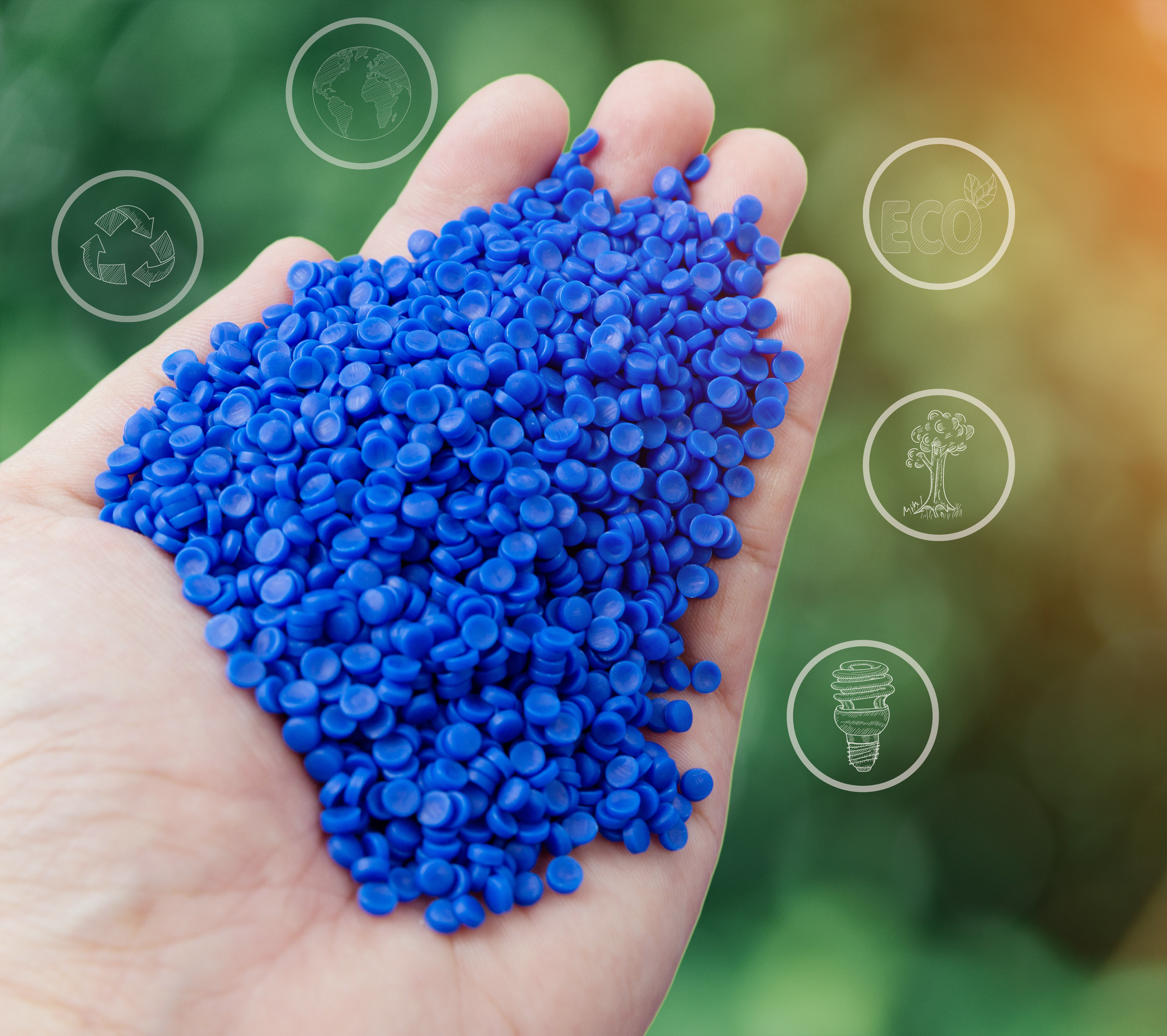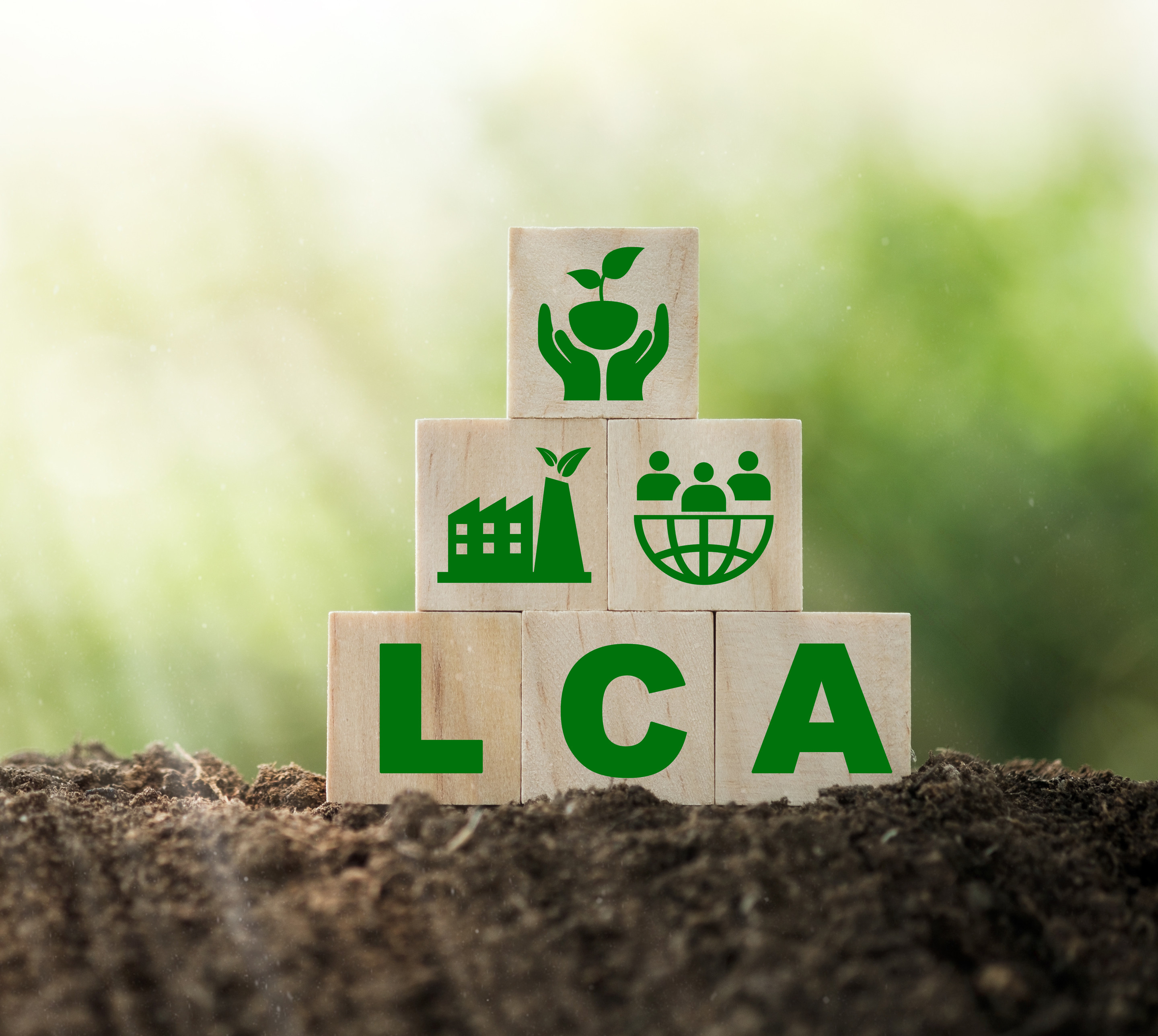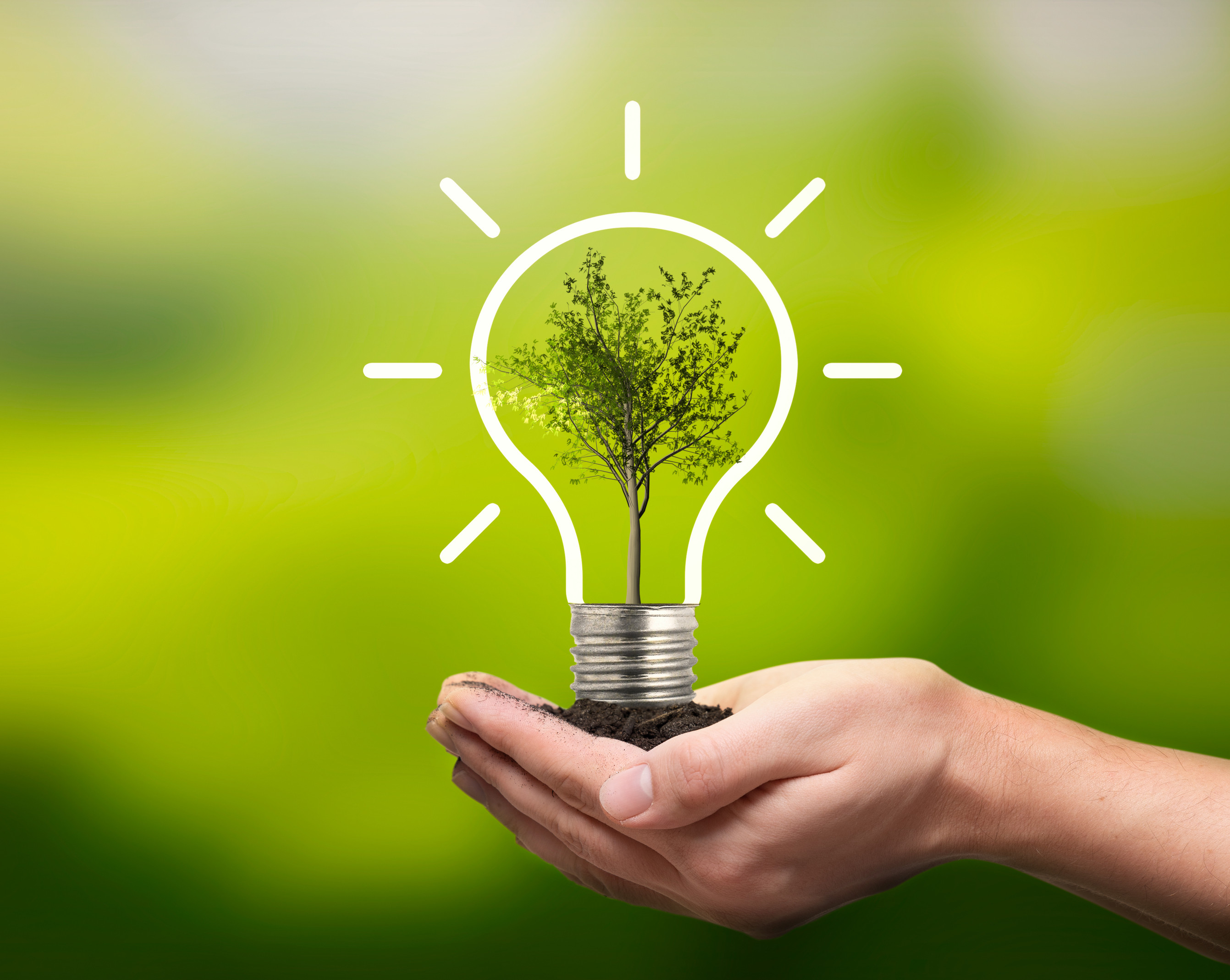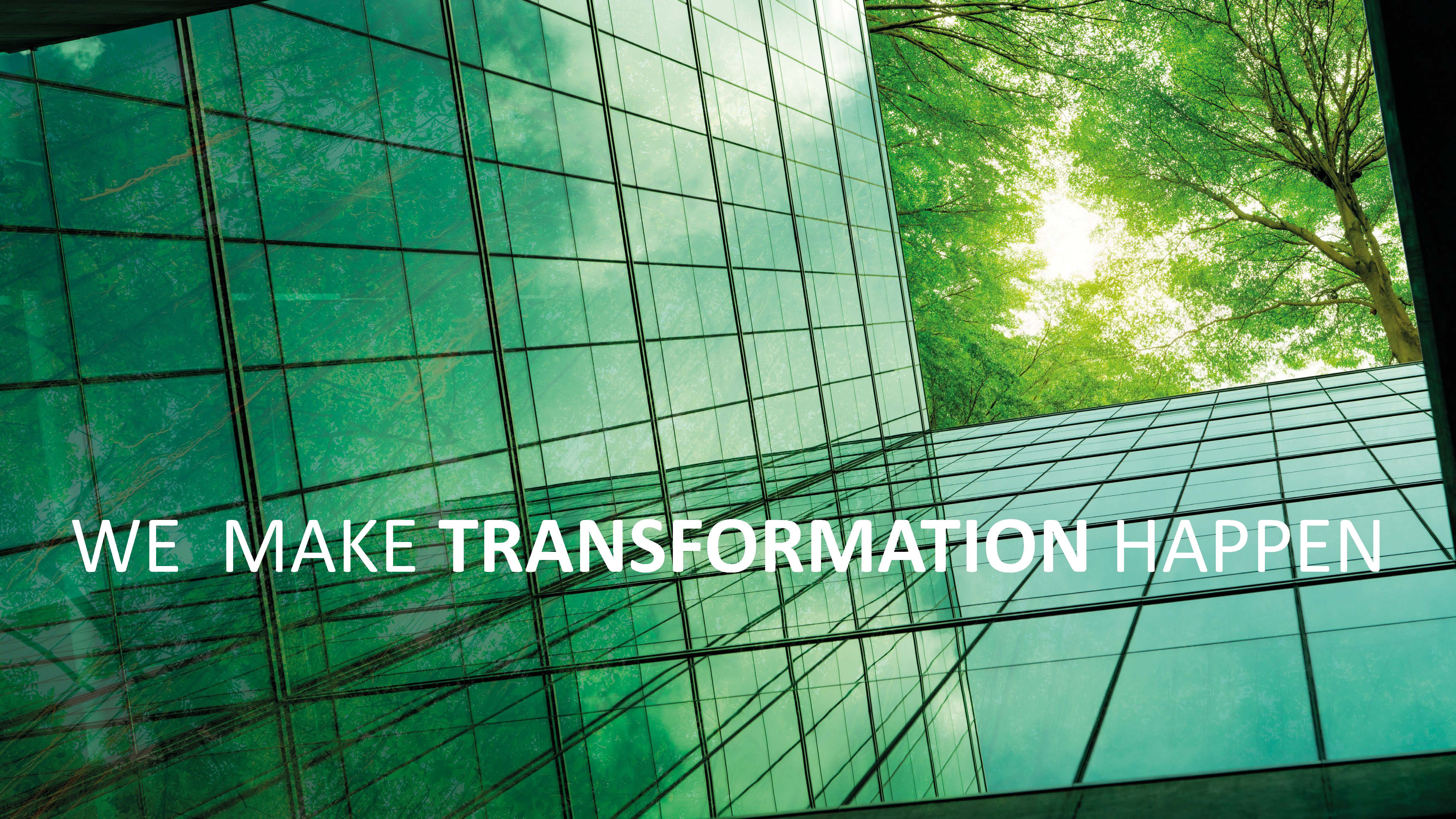Sustainability Management
Conventional industrialized activities today far exceed the regenerative capacity of the planetary boundaries and thus cause changes of state that are accompanied by an impairment/endangerment of prosperity - often initially for vulnerable parts of the world's population, some of whom are already being deprived of their livelihood.
Consistent sustainable development counteracts this and helps to secure our future. In this context, corporate sustainability management stabilizes the company and makes it fit for the challenges of the future. It can increase the attractiveness for customers, employees and investors and respond to future regulations and stakeholder expectations.
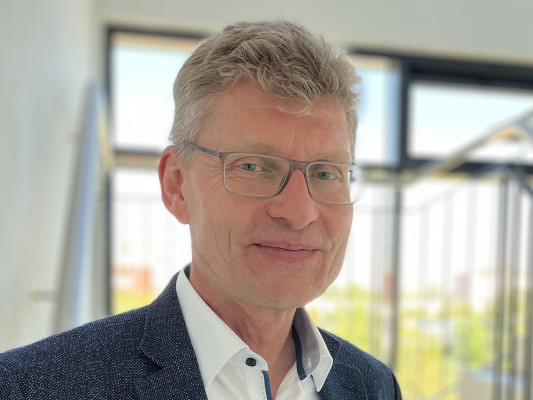
Range of services at a glance
We support the automotive industry, manufacturing industries and their suppliers consistently and end-to-end on the path to sustainable transformation, starting with an analysis from the company perspective, through products/services in current development, to future products/services with innovative business models.
The individual modules can be ordered separately.
If you are interested in customized consulting services to help you achieve your goals for successful sustainable development then our experts team from ARRK Sustainability Consulting supports you on your path to enhance sustainability: From analyzing your current practices and deducting individual strategies to implementation and training.
Corporate Sustainability Consulting
From sustainability check to CSRD report
Our sustainability experts advise small and medium-sized enterprises (SMEs) from the developing and manufacturing sector in particular on analysing, planning and implementing their sustainability issues.
One focus is on the Corporate Sustainability Reporting Directive (CSRD) and the associated reporting in accordance with the European Sustainability Reporting Standards (ESRS) as part of the annual financial and management report.
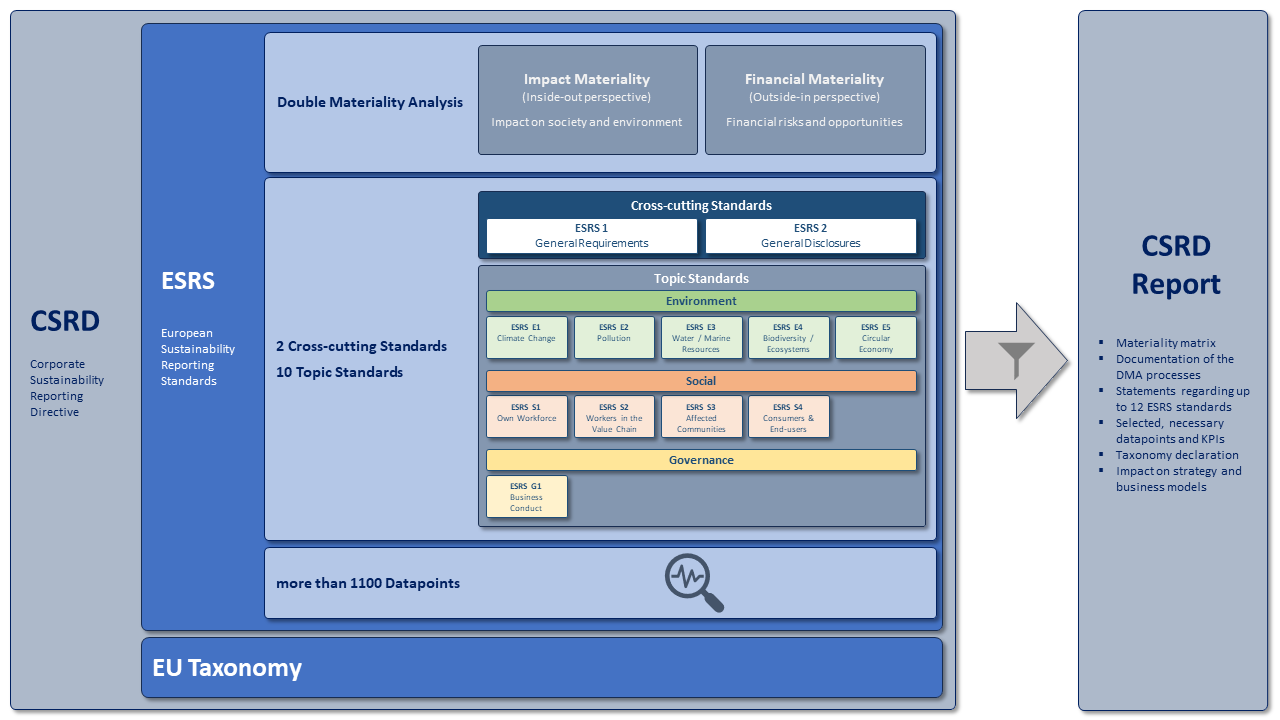
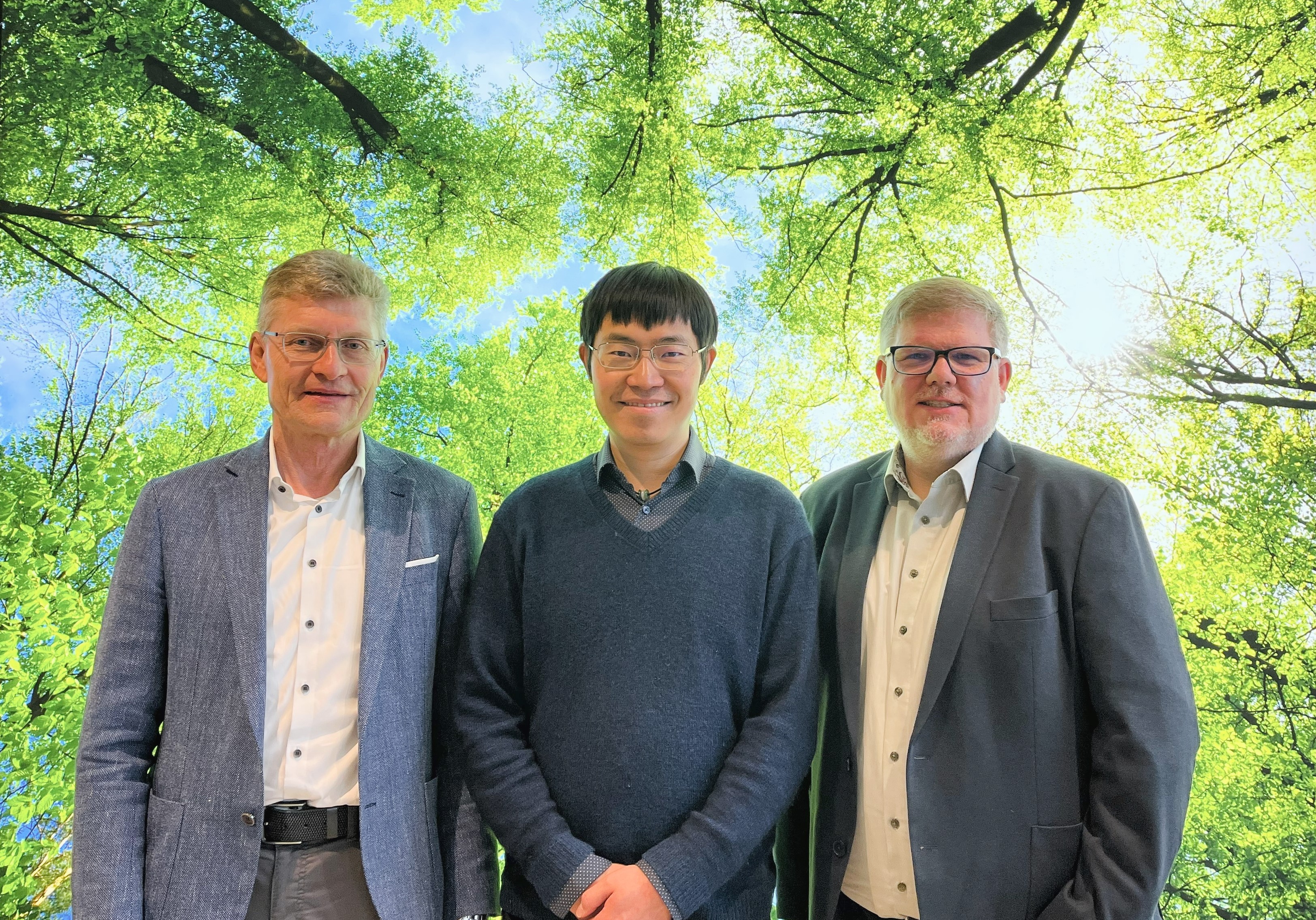
Our Sustainability Consulting team reports on the important change of the CSRD for European companies. In this interview, we explore the key requirements of the Corporate Sustainability Reporting Directive (CSRD), the challenges in its implementation, and the strategic opportunities that may arise for companies in the future, together with our experts for corporate sustainability consulting, Dr. Jens Ramsbrock, Dr. Kesheng Shu and Alexander Roas.
If you would like to know more about our team of experts and find out further details about our expertise, please visit our website!
Find out with us how sustainable your company is today!
With our ARRK Sustainability Check, we systematically analyse and evaluate your company's sustainability performance according to the 20 criteria of the German Sustainability Code (DNK), VDI Guideline 4070 ‘Sustainable Management’, the key criteria of the Global Reporting Initiative (GRI) and/or the specific topics of the CSRD.
If there is a need for action, a roadmap for addressing the issues is drawn up and presented for discussion. Any deficits or identified opportunities can be the starting point for product modifications or new development projects. The knowledge gained can also be used as the basis for appropriate reporting.
We also offer customised workshops and training courses on the topic of sustainability, for example:
- The basics of sustainability
- Your company in the context of the Sustainable Development Goals (SDGs)
- (Self) assessments to determine your own level of maturity in sustainability performance
- Customised workshops and training courses for your company
We support you in successfully fulfilling your sustainability reporting obligations!
From the start of the 2025 financial year, many companies will have to publish a sustainability report in accordance with the Corporate Sustainability Reporting Directive (CSRD) and the EU taxonomy as part of their annual financial and management report for the first time. This affects companies that fulfil at least two of the following three criteria:
- at least € 25 million in total assets
- at least € 50 million in net sales
- at least 250 employees in the financial year
Part of the CSRD are the harmonised EU standards for sustainability information, the so-called European Sustainability Reporting Standards (ESRS), which are used to first identify the sustainability issues that are important (‘material’) for your company as part of the Double Materiality Analysis (DMA). This requires consideration of the company's impact on society and the environment (inside-out perspective) as well as the financial risks for the company (outside-in perspective). The results must be documented with company specific KPIs, included in the annual report and audited by an auditor.
With the help of a structured roadmap and useful software tools, we guide you through the process of double materiality analysis:
- Introductory workshop on double materiality analysis
- Identification and survey of stakeholders
- Identification of the departments and employees affected in your company
- Interviews on the topics of the European Sustainability Reporting Standards (ESRS) in the areas of environment, social and governance
- IRO screening: determining the impacts, risks and opportunities
- Assessment of the ESRS topics relevant to your company
- Evaluation of the criteria of the double materiality analysis
- Identification of the relevant KPIs for the CSRD report
- Support during a pre-audit by your auditor
We are happy to support you on the way to a successful CSRD report:
- Determining the next steps for your sustainability report
- Introduction to the EU taxonomy methodology
Review of your corporate strategy regarding relevant topics
Life Cycle Assessment (LCA)
The ecological impact of a product (or service) can be systematically determined by means of a life cycle assessment (LCA) and classified according to impact categories. These standardized results are ideal for transparent communication. Companies with a high level of sustainability awareness are already making use of them.
Legislators have also recognized the advantages of LCA. The new EU Battery Regulation, for example, requires that a carbon footprint of batteries for electric vehicles be reported from 2024 (the impact category "Global Warming Potential" of an LCA).
Methodology LCA
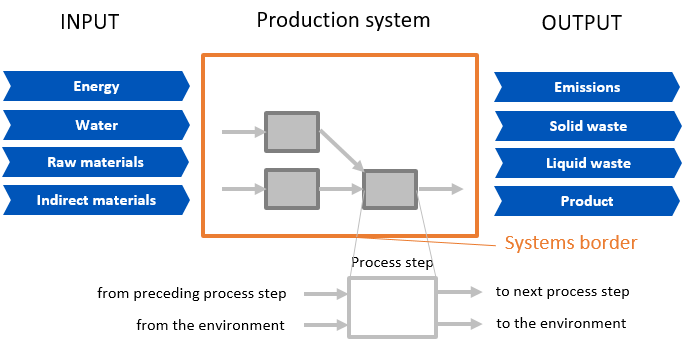
Figure 1: Production process
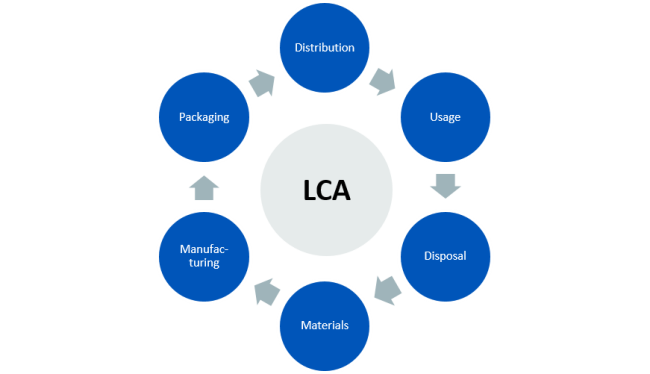
Figure 2: Life cycle phases
LCA follows a four-step process with mutual interactions (Fig. 3): First, the object of study as well as the system boundaries and the goal of the analysis are determined. To determine a life cycle inventory, a model is built and fed with data to calculate emissions and resource consumption. A so-called impact assessment is then determined automatically by means of classifications and, if necessary, weightings with a view to significant ecological impact categories. Greenhouse gas impact is only one of these categories - although it is highly relevant. In the course of interpreting the results, scenarios can be modeled, particularly in the development phase of a product, in order to provide a secure decision-making basis for ecological optimization of the impact.

Figure 3: Life cycle assessment steps
The life cycle assessment is prepared over the entire life cycle phases of the product/service along the balancing steps (1 to 4) in accordance with the ISO 14040ff series of standards.
The ARRK range of services includes:
- Execution of LCAs accompanying the development process
- Performance of LCAs after completion of series development
- Accompanying the critical review of an LCA by an independent third party, e.g. a technical service
Sustainability Innovation Consulting
ARRK Sustainable Innovation Consulting aims to optimize existing products and/or services in terms of sustainability or to generate ideas for new products/services and to set up and, if desired, accompany their development both technically and in terms of budget.
The basis is our technology scouting and networking, with visits to conferences and trade fairs, reading publications and interviews with selected experts. Trends in the sustainability scene, new regulations and opportunities to achieve a positive impact are also constantly monitored and evaluated. In addition to new players in the market, existing and potential competitors and their behavior are also analyzed.
Methodology Sustainability Innovation Consulting
Sustainability Innovation Consulting essentially follows the proven innovation process. First, as many innovation candidates as possible are identified using creativity techniques. Based on technical and business criteria, a selection of ideas is made from these candidates to be pursued further. In a planning phase, a development project is professionally set up, the technical process is planned, and the work packages with the required resources are defined. The expected profitability can be estimated in a business analysis. Before entering the market, it is advisable to pilot the product with paying pilot customers in order to identify any final product improvements prior to series production.
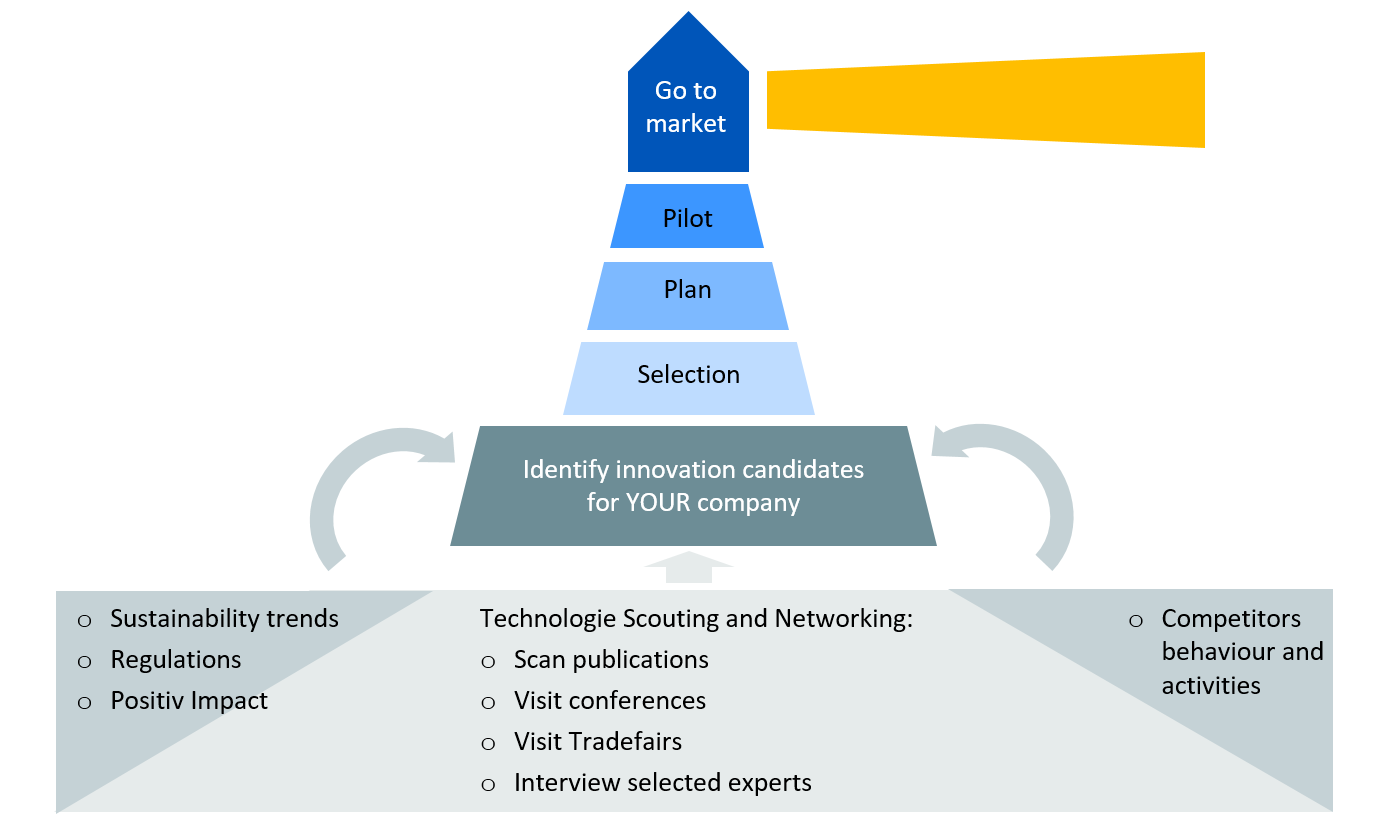
Within the framework of Sustainable Innovation Consulting, potential opportunities for the realization of circular business models in particular are also recorded and evaluated in the identification phase.
Because ARRK always flanks this process with its competencies in the areas of corporate sustainability, sustainable materials and, if necessary, explicitly an accompanying life cycle assessment, there is a high chance for a real lighthouse innovation with high charisma - and of course profitability.
Our parent company Mitsui Chemical is focusing on sustainability in its Vision 2030. As a chemical and materials supplier, it proactively promotes sustainable products and materials.
Cooperation Partner

FutureCamp is a management consultancy based in Munich. Since 2001, approximately 55 experienced experts have been providing consulting services in the competence fields of climate protection, sustainability, energy efficiency, environmental management and innovation. FutureCamp offers its clients strategic and operational support, short-term collaboration and long-term cooperation in the areas of, among others, climate and sustainability strategy, transformation concepts, national and EU emissions trading, CO2 market activities, greenhouse gas accounting, voluntary climate protection contributions, CSR reporting, science-based targets and grant applications. The broad range of clients includes international corporations, government-related agencies, municipalities, medium-sized companies and public educational institutions.
Together, ARRK Engineering and FutureCamp Climate with their experienced team of experts will support you in the Sustainability Check to develop a comprehensive reporting compliance program that meets your individual needs and upcoming guidelines.
In addition, we are happy to help you with the implementation as well as the derivation and communication of your sustainability strategy, the implementation of sustainable processes and the preparation of your company for the future.
You can find more information in our Sustainability Check flyer.
